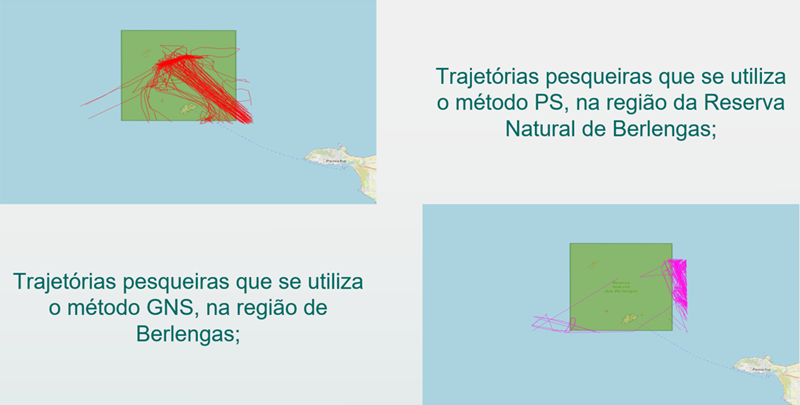Divided into three teams, they explored challenges ranging from illegal fishing monitoring to characterising regional fishing activities.
Two teams took on the challenge of using satellite imagery to identify vessels involved in illegal fishing near protected MPAs. They used the data to analyze fishing hotspots and vessel types, proposing an improved patrol system.

Team 1 used the FMS service to identify a main fishing cluster close to the port of Tema (see above), several unrecognized boats were also found several kilometres outside this area which could be a strong indication of illegal fishing activity.
The second team addressed the challenges around the fishing footprint, monitoring and surveillance, and characterisation of fishing areas. The team went well beyond the scope of the challenges and produced some very interesting insights into the upwelling seasonal and spatial distribution and the resultant fishery activity.

Analyzing Portuguese marine protected areas, Team 3 focused efforts on the Berlengas Natural Reserve. By characterising vessel traces, they worked to identify and pinpoint different fishing methods in use.

"The students did an amazing job developing innovative ways to use these NextOcean products," said Pedro Ribeiro who organised the event. "It really shows the power of opening up this data to fresh eyes and multi-disciplinary teams."
Sharing their hackathon experience, one team remarked:
“We were really pleased to be a part of this hackathon to support NextOcean’s goal of providing easy access to Earth Observation-based data for fisheries and aquaculture. After working with the platform, we were also able to offer constructive feedback on improving functionality. Enhancing reliability and user support can help unlock the full potential of this tool for sustainable fisheries and aquaculture.”
The final rankings were:
First place: Team 1
With an impressive total of 177 points out of a maximum of 180.
- Miguel Pires
- Ricardo Pereira
- Tiago Ferreira
Second place: Team 2
Third place: Team 3
- Filipe Ferreira
- Larissa Silva
- Carlos Pitra